
Amsterdam (NH): St. Franciscus Xavierius or De Krijtberg (A. Tepe, 1881-1883)
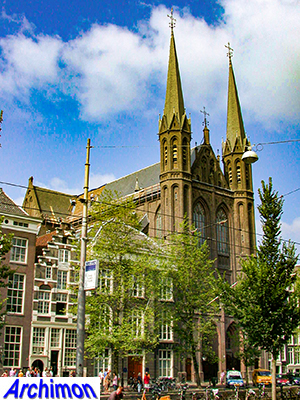 Like
the other Roman Catholic churches in the old centre of Amsterdam, the
history of this one starts with a hidden church. This hidden church was
founded in 1654 in the back of the house 'De Crijtbergh', as this name,
which means 'chalk mountain' was spelled then. The church was a Jesuit
one then and still is.
Like
the other Roman Catholic churches in the old centre of Amsterdam, the
history of this one starts with a hidden church. This hidden church was
founded in 1654 in the back of the house 'De Crijtbergh', as this name,
which means 'chalk mountain' was spelled then. The church was a Jesuit
one then and still is.
The makeshift church was replaced by a new building, more worthy of the
name 'church', in 1881. As in the other cases when a former hidden
church was replaced by a new church, there were space limitations.
Architect Alfred Tepe however managed to construct a rather big church,
especially when compared to the St. Willibrordus in Utrecht, built a
few years earlier under similar space limitations.
Because only the front would be directly visible Tepe gave the church a
monumental facade with octagonal towers at the sides of it, instead of
his usual square tower. Instead of a true transept there's a
pseudo-transept with undeep arms, and the choir is flanked by
diagonally positioned chapels. In the interior optimal use of space was
made by limiting the width of the side-aisles, thus creating more space
for the central aisle. A gallery above the side-aisles provided even
more space.
De Krijtberg is one of the highlights in Tepe's career. The interior
was largely provided by the Mengelberg firm in Utrecht and is mostly
still present. In the 1970's the church was seriously threathened with
demolition, but thankfully it was restored instead. This restoration
started in 1979 and was completed in 2001.
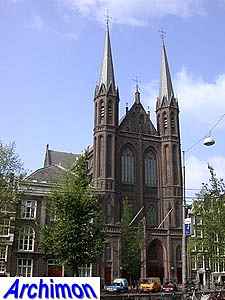
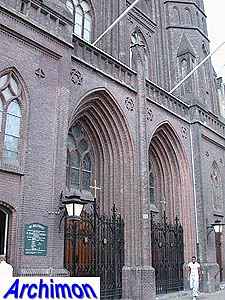
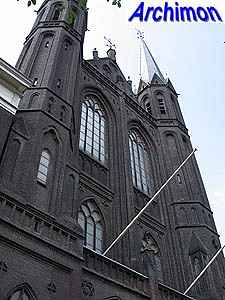
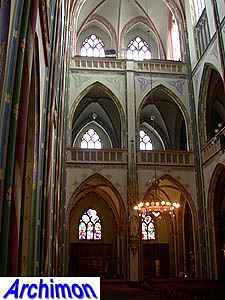
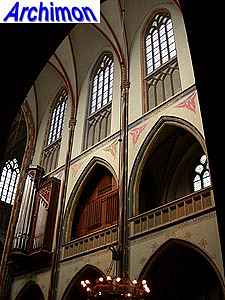
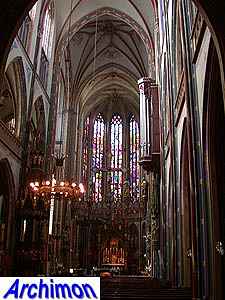
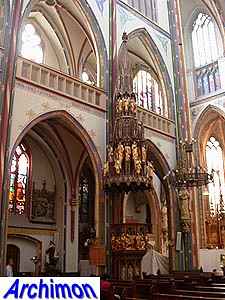
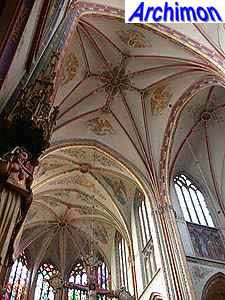
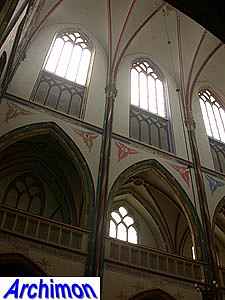
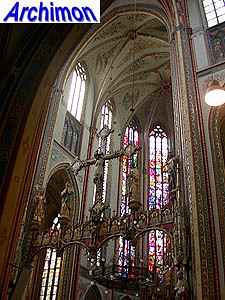
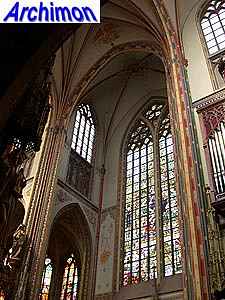
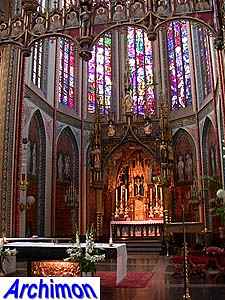
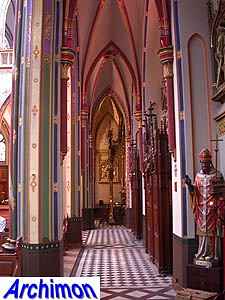
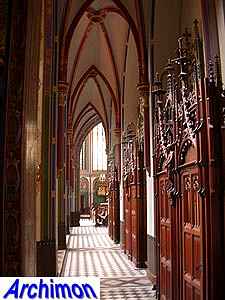
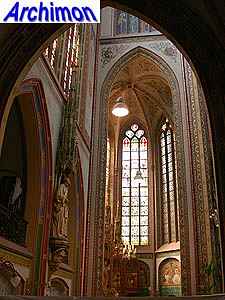
Back to Amsterdam
Back to A. Tepe